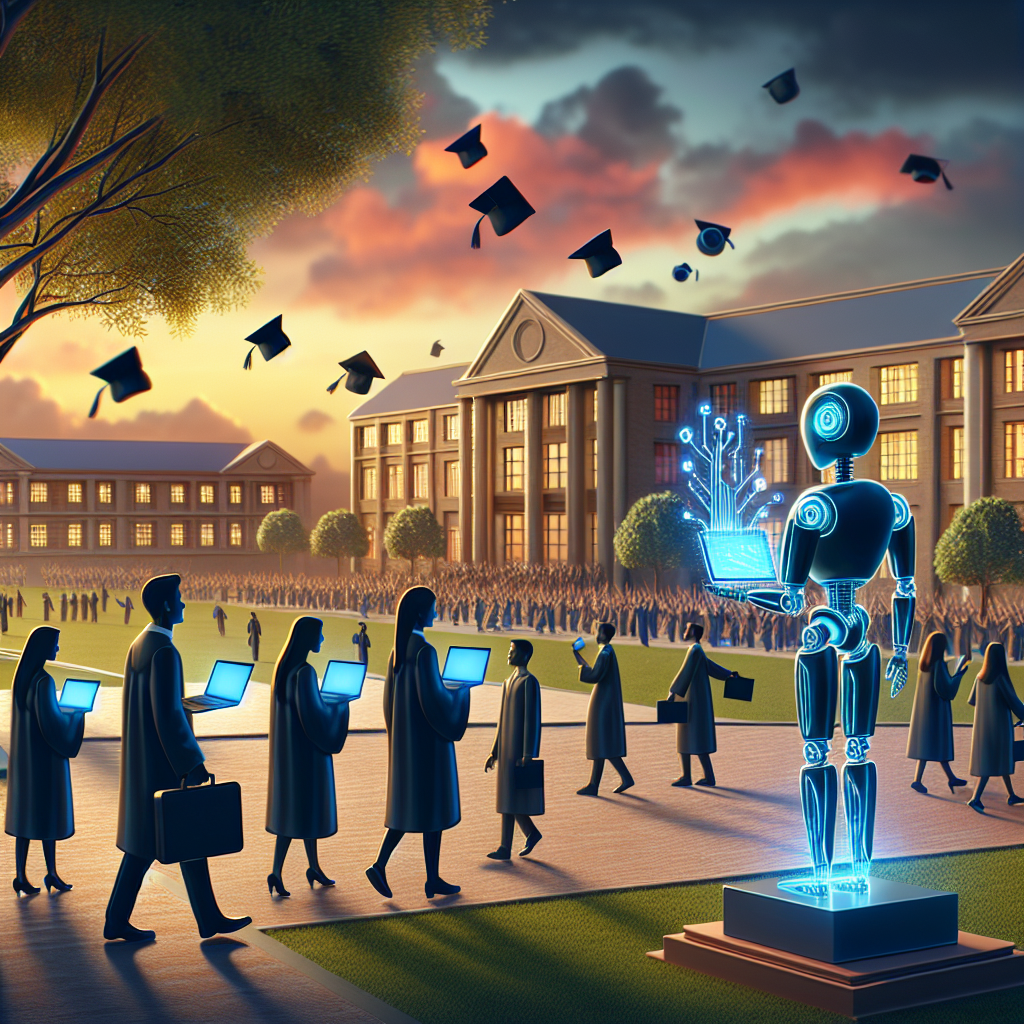Artificial Intelligence (AI) is transforming the way we live and work, and higher education is no exception. As AI continues to advance, it is crucial for educators and institutions to prepare students for the future workforce by incorporating AI into the curriculum and providing opportunities for hands-on experience with this cutting-edge technology.
The Impact of AI on Higher Education
AI is revolutionizing the way we teach and learn in higher education. From personalized learning experiences to automated grading systems, AI is reshaping the traditional classroom environment and providing new opportunities for students to enhance their skills and knowledge.
One of the key impacts of AI on higher education is the ability to personalize learning experiences for students. AI algorithms can analyze student data and tailor educational content to meet the individual needs of each student. This personalized approach to learning can help students stay engaged and motivated, leading to improved academic performance and retention rates.
AI is also revolutionizing the way students interact with educational materials. Virtual reality (VR) and augmented reality (AR) technologies powered by AI are being used to create immersive learning experiences that allow students to explore complex concepts in a hands-on and interactive way. These technologies can help students better understand difficult concepts and retain information more effectively.
In addition, AI is making it easier for educators to assess student performance and provide timely feedback. Automated grading systems powered by AI can quickly analyze student work and provide detailed feedback on areas for improvement. This real-time feedback can help students identify their strengths and weaknesses and make adjustments to their learning strategies accordingly.
Furthermore, AI is helping higher education institutions streamline administrative processes and improve operational efficiency. Chatbots powered by AI are being used to answer student inquiries, schedule appointments, and provide support services. This automation of routine tasks allows faculty and staff to focus on more strategic initiatives and provide better support to students.
Preparing Students for the Future Workforce
As AI continues to reshape the workforce, it is crucial for higher education institutions to prepare students for the jobs of the future. In order to succeed in a rapidly changing job market, students need to develop skills that are in high demand, such as critical thinking, problem-solving, and creativity.
AI is playing a key role in helping students develop these skills. By incorporating AI into the curriculum, students can gain hands-on experience with this technology and learn how to leverage it to solve complex problems. This practical experience with AI can help students develop critical thinking skills and prepare them for the challenges they will face in the future workforce.
In addition, higher education institutions are partnering with industry leaders to provide students with opportunities to gain real-world experience with AI. Internships, co-op programs, and research projects allow students to work on AI projects and collaborate with professionals in the field. These experiences can help students build their network, gain valuable skills, and increase their chances of securing a job after graduation.
Furthermore, higher education institutions are incorporating AI ethics and responsible AI practices into their curriculum to ensure that students are prepared to navigate the ethical dilemmas associated with AI. As AI continues to advance, it is crucial for students to understand the implications of this technology and how to use it responsibly.
FAQs
Q: How can AI improve the quality of education in higher education?
A: AI can improve the quality of education in higher education by personalizing learning experiences for students, providing real-time feedback on student performance, and creating immersive learning experiences with VR and AR technologies.
Q: How can students prepare for the future workforce with AI?
A: Students can prepare for the future workforce with AI by gaining hands-on experience with this technology, developing critical thinking and problem-solving skills, and participating in internships and research projects related to AI.
Q: What are the ethical implications of AI in higher education?
A: The ethical implications of AI in higher education include concerns about data privacy, bias in AI algorithms, and the impact of AI on job displacement. It is important for educators and institutions to address these ethical dilemmas and ensure that AI is used responsibly.
In conclusion, AI is transforming higher education by personalizing learning experiences, improving student performance, and preparing students for the future workforce. By incorporating AI into the curriculum and providing opportunities for hands-on experience with this technology, higher education institutions can help students develop the skills they need to succeed in a rapidly changing job market. As AI continues to advance, it is crucial for educators and institutions to stay ahead of the curve and ensure that students are prepared for the challenges and opportunities that lie ahead.

